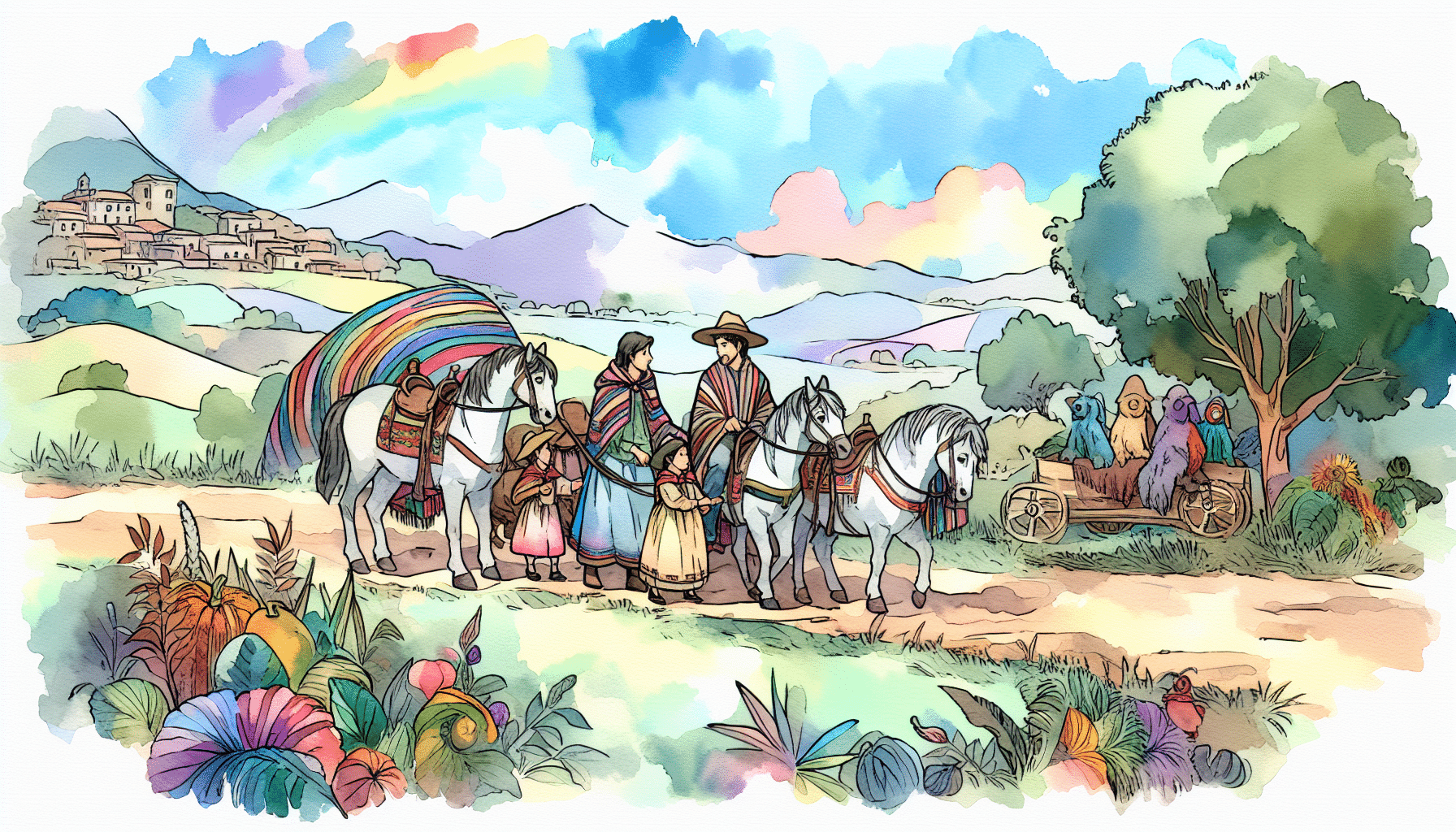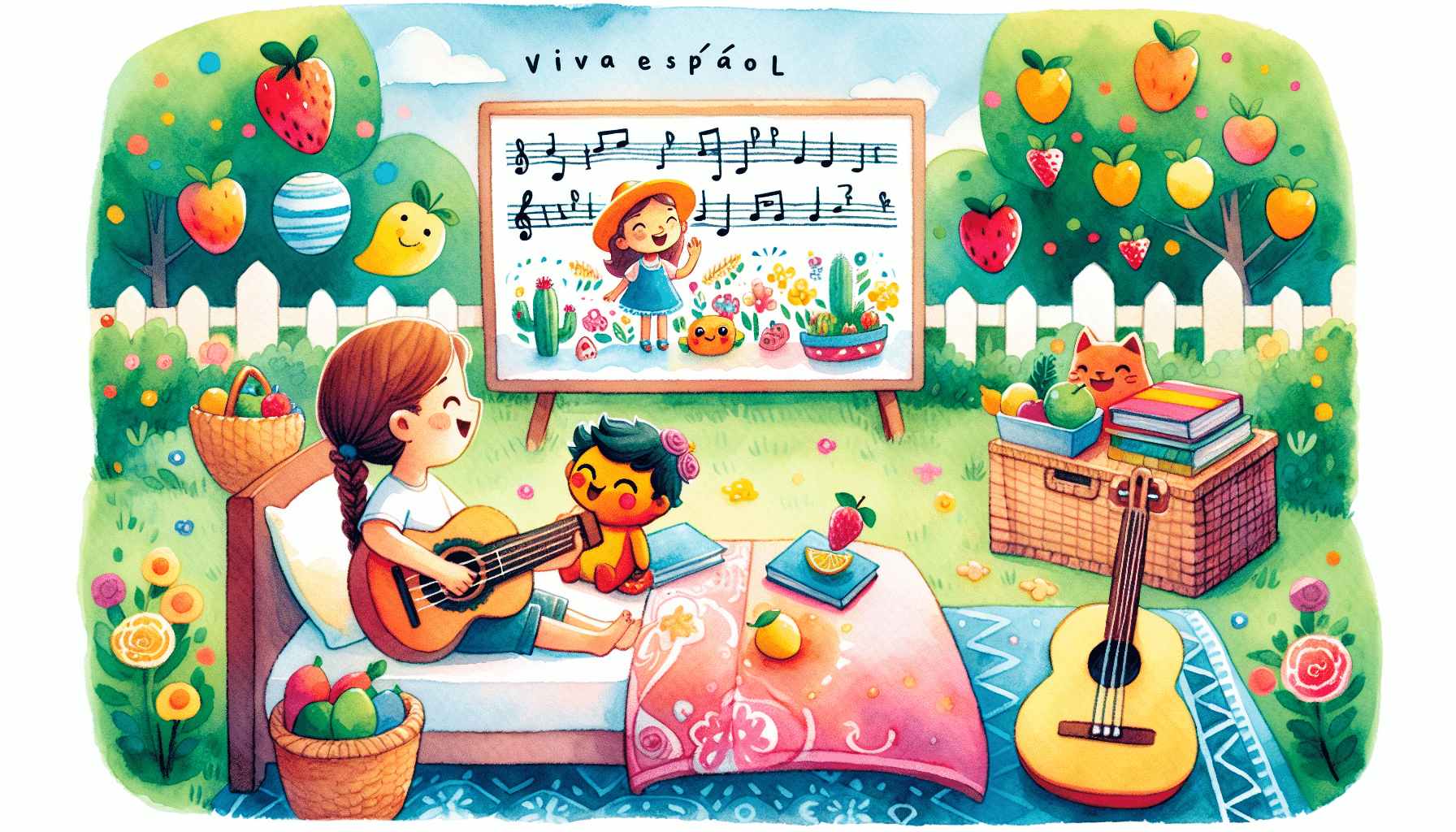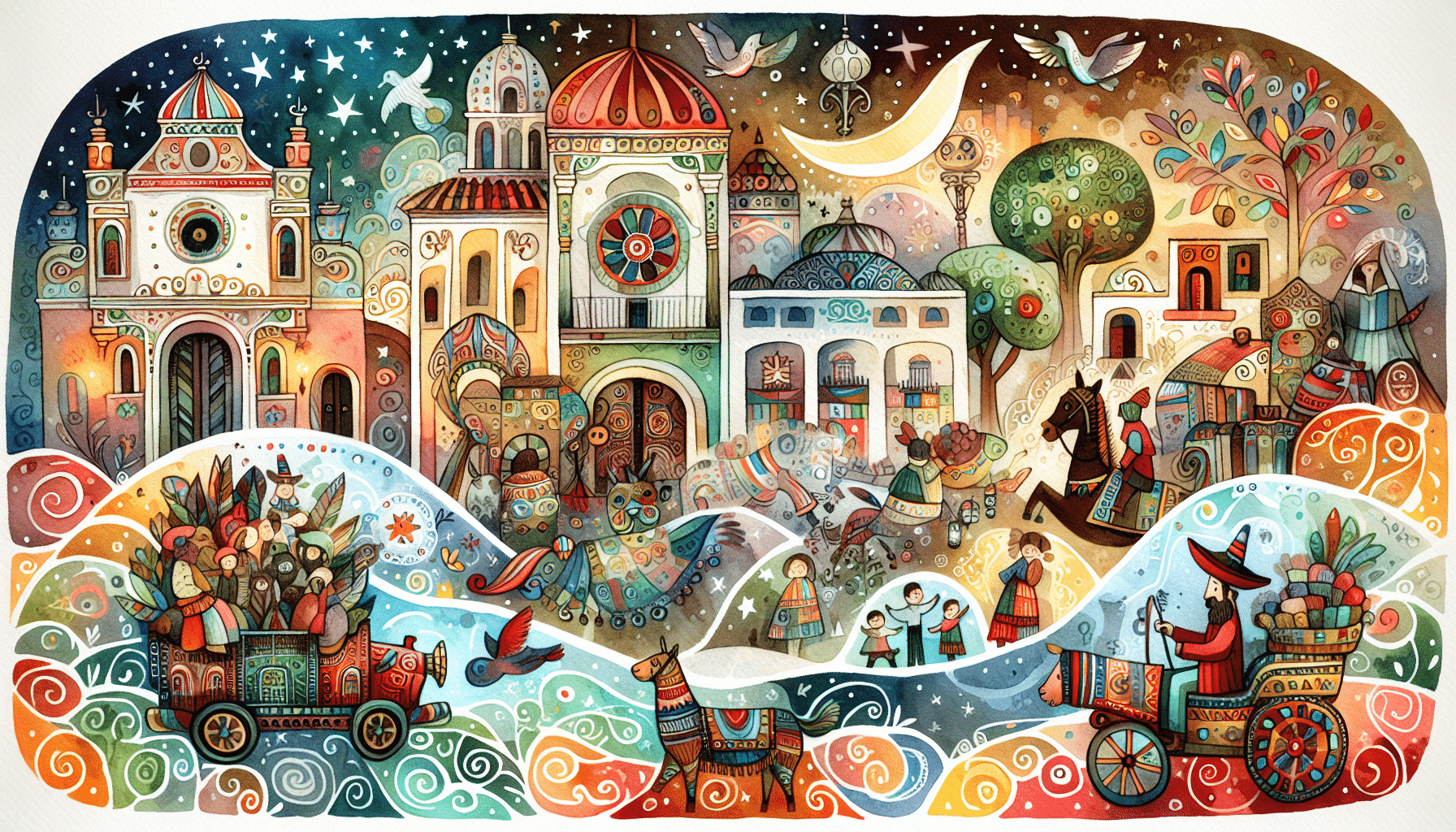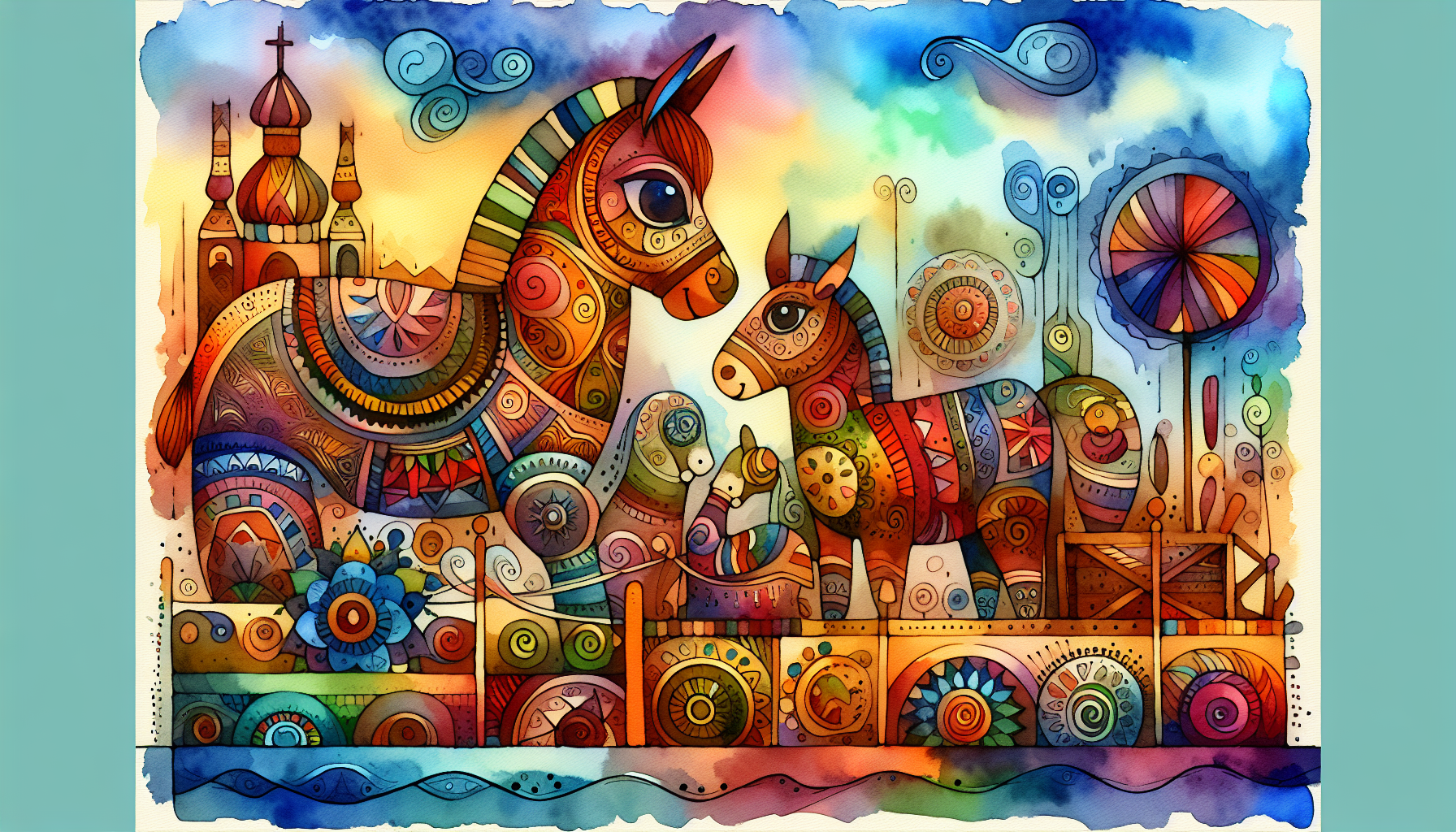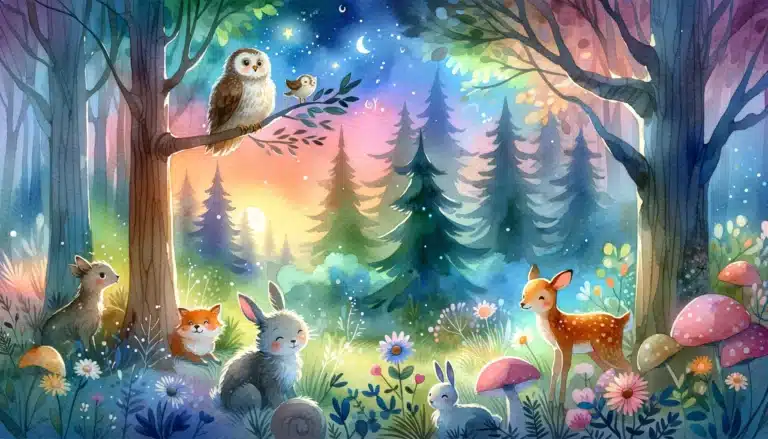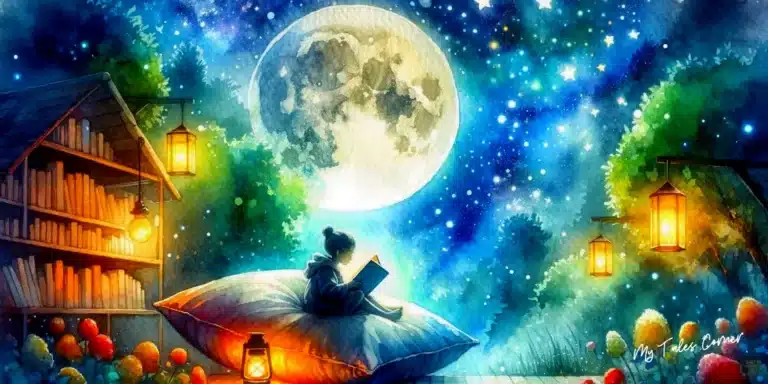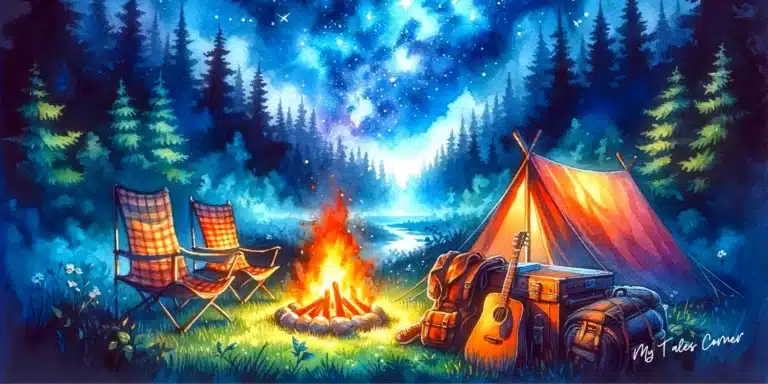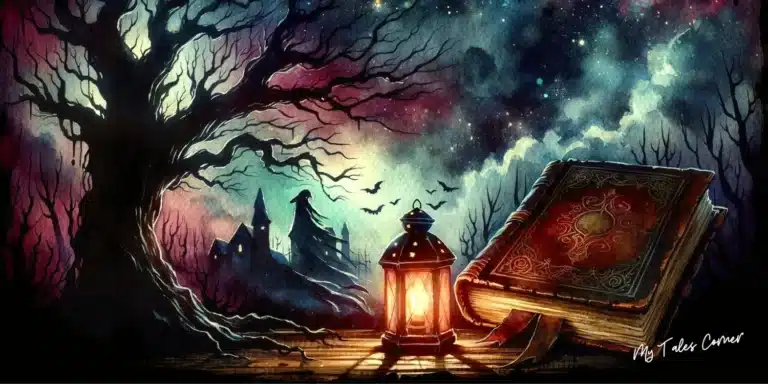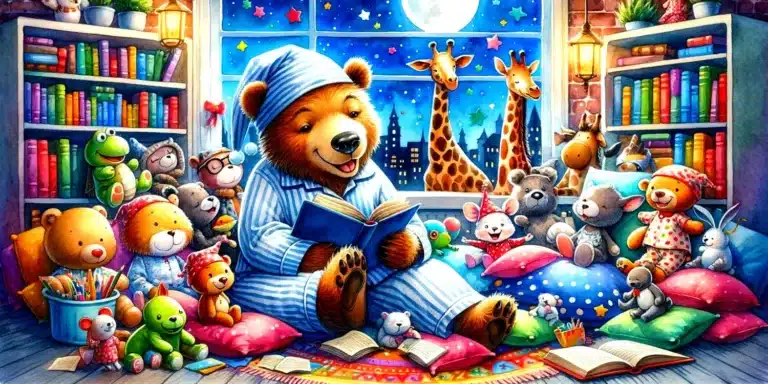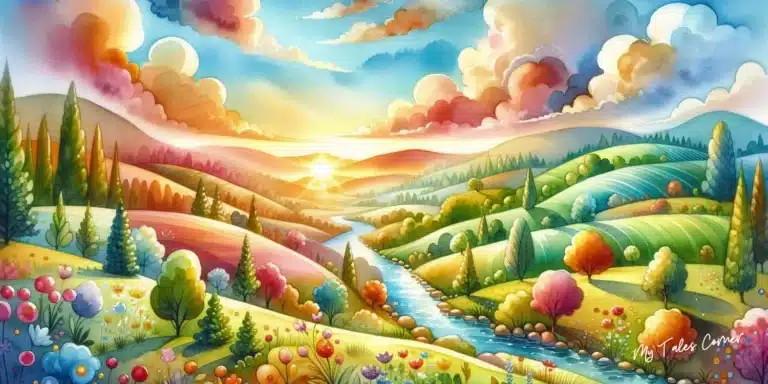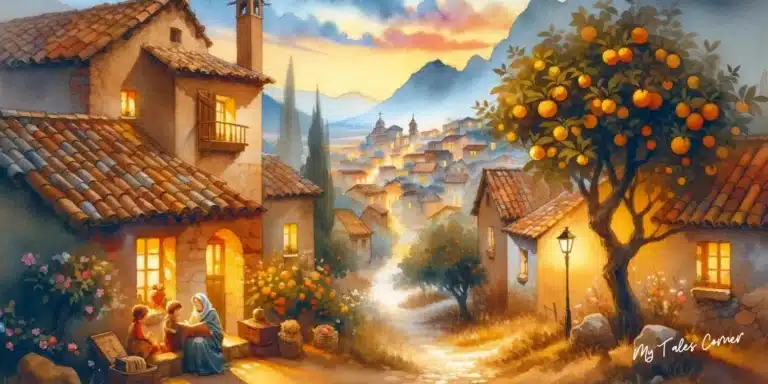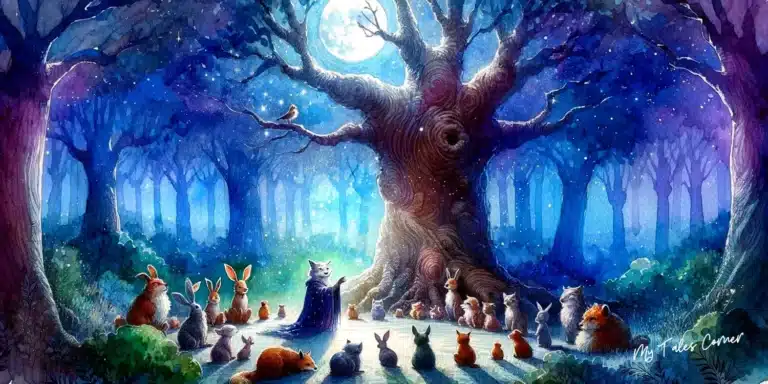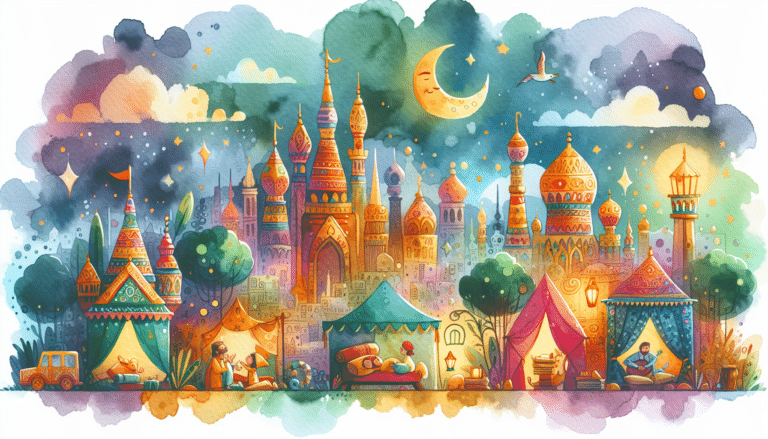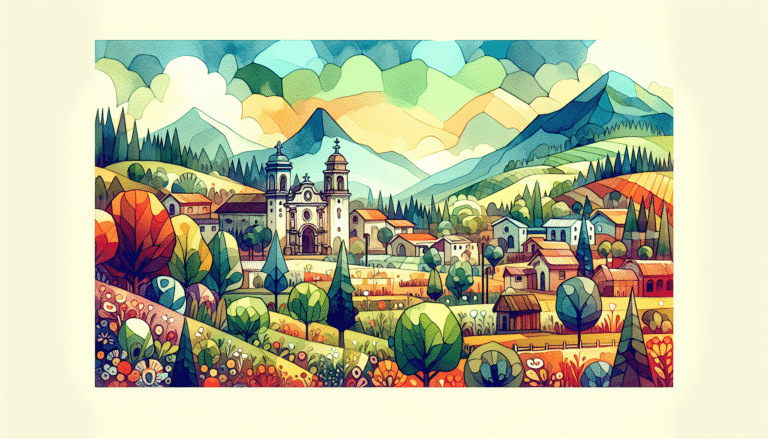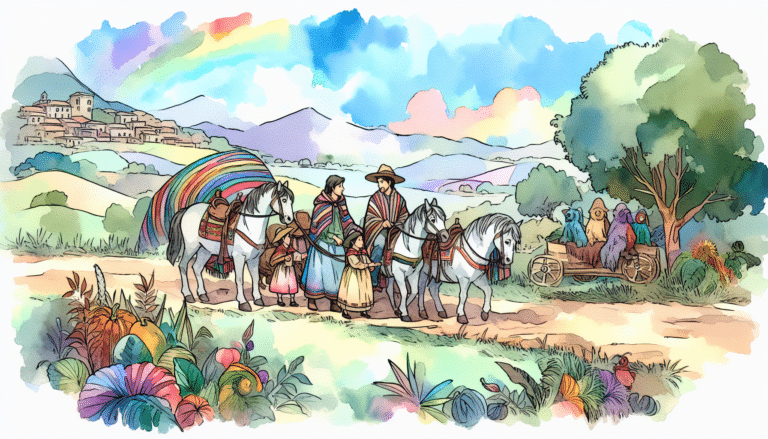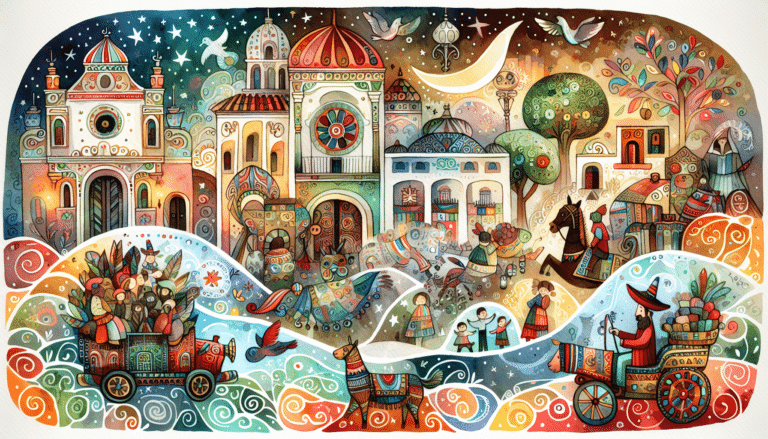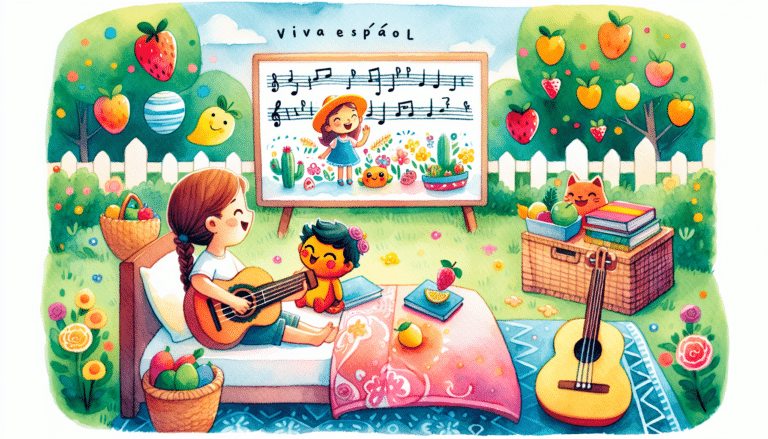Language Lore: Spanish Tales to Expand Your Linguistic Horizons (Version in Spanish and in English)
Leyendas Lingüísticas: Cuentos en Español para Expandir tus Horizontes Lingüísticos (Versión en español)
Érase una vez, en un pintoresco pueblo anidado entre montañas imponentes y ríos centelleantes del campo español, vivían tres amigos con espíritu vivaz: Lucas, un zapatero conocido por sus dedos ágiles y su generoso corazón; Alma, una anciana viuda con una trenza gris loba y ojos azules como el mar chispeantes; y Martina, una niña brillante con madejas de carbón animadas y una naturaleza inquisitiva. Ellos, a pesar de sus diferencias de edad, compartían un amor común por las historias que a menudo los reunía alrededor de una chimenea crepitante durante las frías noches de invierno.
La historia comienza en una de esas noches, con Lucas narrando un cuento sobre un tesoro oculto misterioso, aventureros intrépidos y enigmas enigmáticos. Sus historias nunca eran cuentos ordinarios, sino más bien portales que conducían a tierras inexploradas, auxiliados por sus vívidas descripciones y personajes como de la vida real. Esa noche, los troncos de madera bailaban al son de su voz, proyectando sombras peculiares que danzaban al unísono.
A mitad de la historia, Lucas de repente hizo una pausa, estrechando los ojos como si tratara de recordar algo. De su bolsillo del abrigo, extrajo un pergamino arrugado que se había amarillento y desgastado con el tiempo. Su voz ronca creaba una anticipación tensa mientras empezaba a leer del documento antiguo.
«La montaña ríe, el río canta», comenzó. El trío pronto se dio cuenta de que no era solo un cuento, sino un enigma peculiar: una fascinante fusión de realidad y fantasía. Por primera vez, su historia antes de dormir se extendía más allá de los confines de su hogar acogedor hacia la extensión de su pequeño pueblo y sus paisajes místicos.
Este giro inesperado de los acontecimientos encendió un viaje emocionante para nuestros aventureros intrépidos. Se lanzaron al viento y partieron al amanecer hacia las montañas resonantes y el río parlanchín, y pronto su viaje se pintó con encuentros deliciosos y extrañas casualidades.
Primero, conocieron a una vibrante familia de bailarines de flamenco en una fiesta del pueblo, quienes hablaban en versos rítmicos y se movían como cañas mecidas por el viento en un resplandor vespertino. Su ardiente danza, puntualizada por los sonidos hipnóticos de la guitarra y el cajón, pintaba cuentos de amor, pérdida, dolor y júbilo. La familia ofreció pistas reveladoras, agregando otra capa de intriga a su aventura.
Luego, se toparon con una manada de caballos salvajes galopando a través de campos besados por el sol, su libertad espontánea suscitando sentimientos de asombro y maravilla. La vista era un poema viviente, revoloteando en el viento como un soneto olvidado, susurrando versos secretos de belleza y espíritu indómito. Mientras Alma recitaba suavemente sus poemas favoritos de Lorca, sintieron una conexión surrealista con los sementales salvajes.
Durante este viaje enigmático, Lucas, Alma y Martina no solo descubrieron pistas crípticas sobre el tesoro oculto sino que también experimentaron varias facetas del lenguaje y la cultura. Sintieron el dulce ritmo del flamenco, saborearon las lágrimas saladas de la poesía cruda y tocaron la fría melancolía de las canciones de guerra olvidadas.
Su emocionante aventura estuvo salpicada de momentos tranquilos, cada uno perdido en sus pensamientos. Los ojos anchos de Martina se iluminaban con cada historia, cada hecho, las brasas brillantes del conocimiento encendiendo una curiosidad insaciable. Alma encontró consuelo y compañía; el vacío de su pérdida se llenaba con una alegría recién encontrada. Lucas tropezó con los tesoros perdidos de su corazón: la narración de historias y el fomento de la sabiduría en mentes jóvenes.
Tras días de viaje, finalmente llegaron al lugar mencionado en el enigma, una cueva oculta adornada con símbolos antiguos y relatos grabados en sus desgastadas paredes. Dentro de ella, no encontraron un cofre lleno de oro o joyas, sino algo más valioso. Lo que brillaba a la luz de las antorchas era un libro antiguo, bellamente inscrito con cuentos, enigmas y poemas. Habían encontrado, de hecho, un tesoro: un tesoro lingüístico que abarcaba las historias, emociones y el patrimonio de su tierra.
Al regresar, el trío llevaba una nueva luz en sus ojos, una chispa triunfante nacida de la camaradería y la sabiduría. Su historia no fue simplemente la resolución de un enigma o la búsqueda de un tesoro oculto, sino más bien, un testimonio del poder de las historias y la belleza de su idioma.
Y así, su relato trascendió las escalas de una mera historia antes de dormir. Fue un tapiz amorosamente tejido de aventura, cultura y lenguaje. La historia sería transmitida a través de las generaciones, un testimonio de su viaje y un símbolo de su amor por el idioma español.
Reflections on the Story: «Language Lore: Spanish Tales to Expand Your Linguistic Horizons»
The purpose of this tale was to offer readers an immersive and engaging experience, taking them on a journey filled with adventure, culture, and language. The rich detours into Spanish language and heritage served not just to amuse but also broaden the learner’s linguistic horizons.
Each character embodies a specific purpose and presence. Lucas(with his wise and gentle nature), Alma(serving as the comforting reminder of past with her rich memories), and Martina(embedding the enthusiasm of a language learner on the adventurous journey of learning) – all come together to narrate a tale that is as heartwarming as it is instructive.
Indeed, «Language Lore» is more than just a bedtime story. It’s a testament to the magic of languages and how they intertwine inextricably with our stories, our personalities, and our lives. Adventure, culture, language, and friendship – this tale has all the elements to ensure a satisfying, comforting, and inspiring Spanish learning journey.
Language Lore: Spanish Tales to Expand Your Linguistic Horizons (English version)
Once upon a time, in a quaint town nestled between towering mountains and sparkling rivers of the Spanish countryside, lived three spirited friends: Lucas, a cobbler known for his nimble fingers and generous heart; Alma, an elderly widow with a wolven-gray braid and twinkling sea-blue eyes; and Martina, a bright young child with animated charcoal skeins and an inquisitive nature. They, despite their age differences, shared a common love for stories that often brought them together around a crackling fireplace during chilly winter evenings.
The tale begins on such a night, with Lucas narrating a story of a mysterious hidden treasure, intrepid adventurers, and enigmatic riddles. His stories were never just ordinary tales but rather portals that led to unexplored lands, abetted by his vivid descriptions and lifelike characters. That night, the timber logs danced to his voice, casting peculiar shadows that danced along in synch.
Midway through the story, Lucas suddenly paused, his eyes narrowing as if trying to remember something. From his coat pocket, he withdrew a crumpled parchment that had yellowed and frayed with time. His rumbling voice created an edgy anticipation as he started to read from the antique document.
«La montaña ríe, el río canta, the mountain laughs, the river sings», he began. The trio soon realized it was not just a tale but a peculiar riddle- a fascinating fusion of reality and fantasy. For the first time, their bedtime story extended beyond the confines of their cozy home into the expanse of their little town and its mystic landscapes.
This unexpected turn of events sparked an exciting journey for our intrepid adventurers. They threw caution to the wind and set off at the crack of dawn towards the echoing mountains and the babbling river, and soon their journey was painted with delightful encounters and strange happenstances.
First, they met a vibrant family of flamenco dancers at a village fiesta, who spoke in rhythmic verses and moved like wind-wisped reeds in an evening glow. Their fiery dance, punctuated by the hypnotic sounds of the guitar and cajon, painted tales of love, loss, pain, and júbilo. The family offered insightful clues, adding another layer of intrigue to their adventure.
Then, they chanced upon a herd of wild horses galloping across sun-kissed fields, their spontaneous freedom stirring up feelings of awe and wonder. The sight was a living poem, fluttering in the wind like a forgotten sonnet, whispering secret verses of beauty and untamed spirit. As Alma gently recited her favorite Lorca poems, they felt a surreal connection with the wild stallions.
During this enigmatic journey, Lucas, Alma, and Martina not only uncovered cryptic clues about the hidden treasure but also experienced various facets of language and culture. They felt the sweet rhythm of flamenco, tasted the salty tears of raw poetry, and touched the cold melancholy of forgotten war songs.
Their thrilling adventure was peppered with quiet moments, each of them getting lost in their thoughts. Martina’s wide eyes would light up with every story, every fact, the glowing embers of knowledge sparking an insatiable curiosity. Alma found solace and companionship; the void of her loss was brimming with newfound joy. Lucas stumbled upon his heart’s long-lost treasures storytelling and nurturing wisdom in young minds.
After days of journeying, they finally reached the location mentioned in the riddle, a hidden cave adorned with ancient symbols and tales etched on its worndown walls. Inside it, they found not a chest filled with gold or jewels, but something more valuable. What shone in the torchlight was an old, beautifully inscribed book filled with tales, riddles, and poems. They had found a treasure, indeed: a linguistic treasure that encompassed the stories, emotions, and heritage of their land.
As they made their way back, the trio had a new light in their eyes, a triumphant spark borne from camaraderie and wisdom. Their tale was not simply an unraveling of a riddle or a search for hidden treasure, but instead, a testament to the power of stories and the beauty of their language.
And so, their tale transcended the scales of a mere bedtime story. It was a lovingly woven tapestry of adventure, culture, and language. The tale would be passed down through the generations, a testament of their journey and a symbol of their love for the Spanish language.
Abraham Storyteller (Abraham Cuentacuentos)
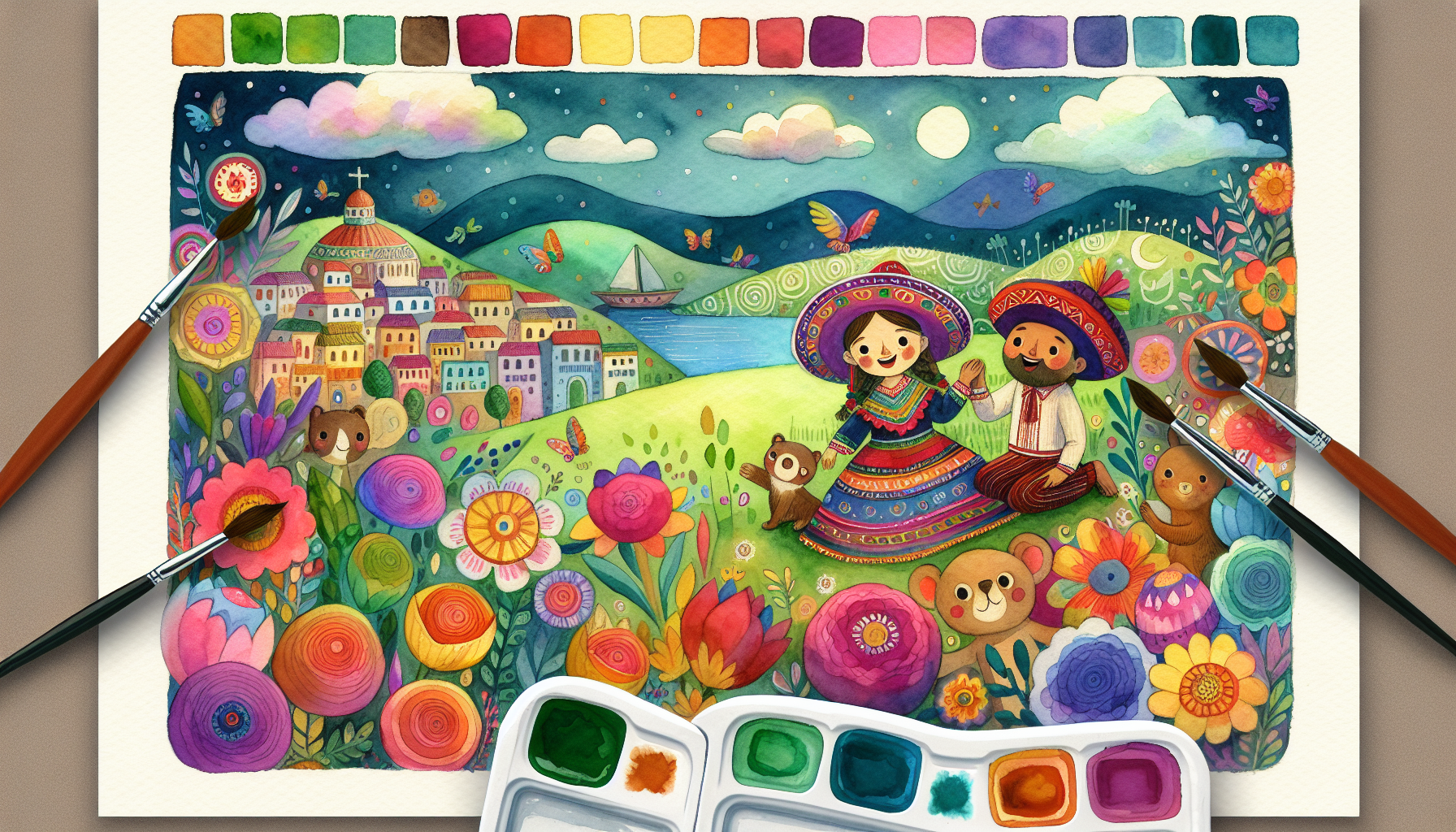 Hispanic Heritage: Captivating Spanish Stories for Cultural Understanding(Version in Spanish and in English)
Hispanic Heritage: Captivating Spanish Stories for Cultural Understanding(Version in Spanish and in English)